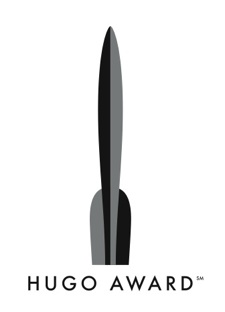The Hugo Awards are awarded annually by the World Science Fiction Society, which is to say the members of the annual Worldcon. The members of the previous and current Worldcons can nominate, but only members of the current Worldcon can vote. The nominations are made up into shortlists of the five top selections in each category, which are then voted on and the winner announced. The longlists of all nominations with more than a certain number of votes are usually released at the same time.
I think it’s very hard to say what the best book of the year is, for any year. It’s much easier to say what the top five are. I thought it might be interesting to look at the individual years and consider what was nominated and what won, to look at what else could have been nominated and wasn’t, and how well the selected books have stood the test of time.
The Hugo is undoubtedly science fiction’s premier award, and it’s entirely fan-administered and fan-voted. It was first awarded in 1953, and has been awarded annually without a break since 1955. I’ve been told that it’s the only award that actually affects sales of a book. The winner gets a rocketship statuette and the inscribed bases are different every year.
I’m going to be talking about books, and sometimes stories, and only occasionally looking at the other categories. I’ll mention when new categories were introduced. I may mention fanzines and fan writers from time to time. I shall look at the Campbell nominees. I am a reader. I’m really not qualified to say anything about the visual categories. (In 1958, “No Award” won for Dramatic Presentation, and I think this excellent precedent could have been followed much more often since.) I shall be using the lists at Locus online, an invaluable resource, and at the official Hugo Awards site.
I haven’t, of course, read every single book nominated for the Hugos since 1953. (What have I been doing with my time?) If I haven’t read it, I shall say so, and I shall say why. Otherwise I shall talk briefly about the books and their place in the field. If I’m inspired to re-read a book and talk about it in detail, I’ll do that separately. I’ll be very interested to hear other opinions and especially suggestions for other things of the year that should have been nominated. My views are, of course, my views, but I’ll be interested to see if there is a consensus—my feeling is that for most years there is, and also that the Hugo nominators are often right, but there are occasionally some startling omissions and some live controversies out there.
I’m going to start with 1953 and stop with 2000, because I don’t think it’s possible to have a proper historical perspective on anything closer than that.
Jo Walton is a science fiction and fantasy writer. She’s published eight novels, most recently Half a Crown and Lifelode, and two poetry collections. She reads a lot, and blogs about it here regularly. She comes from Wales but lives in Montreal where the food and books are more varied.










